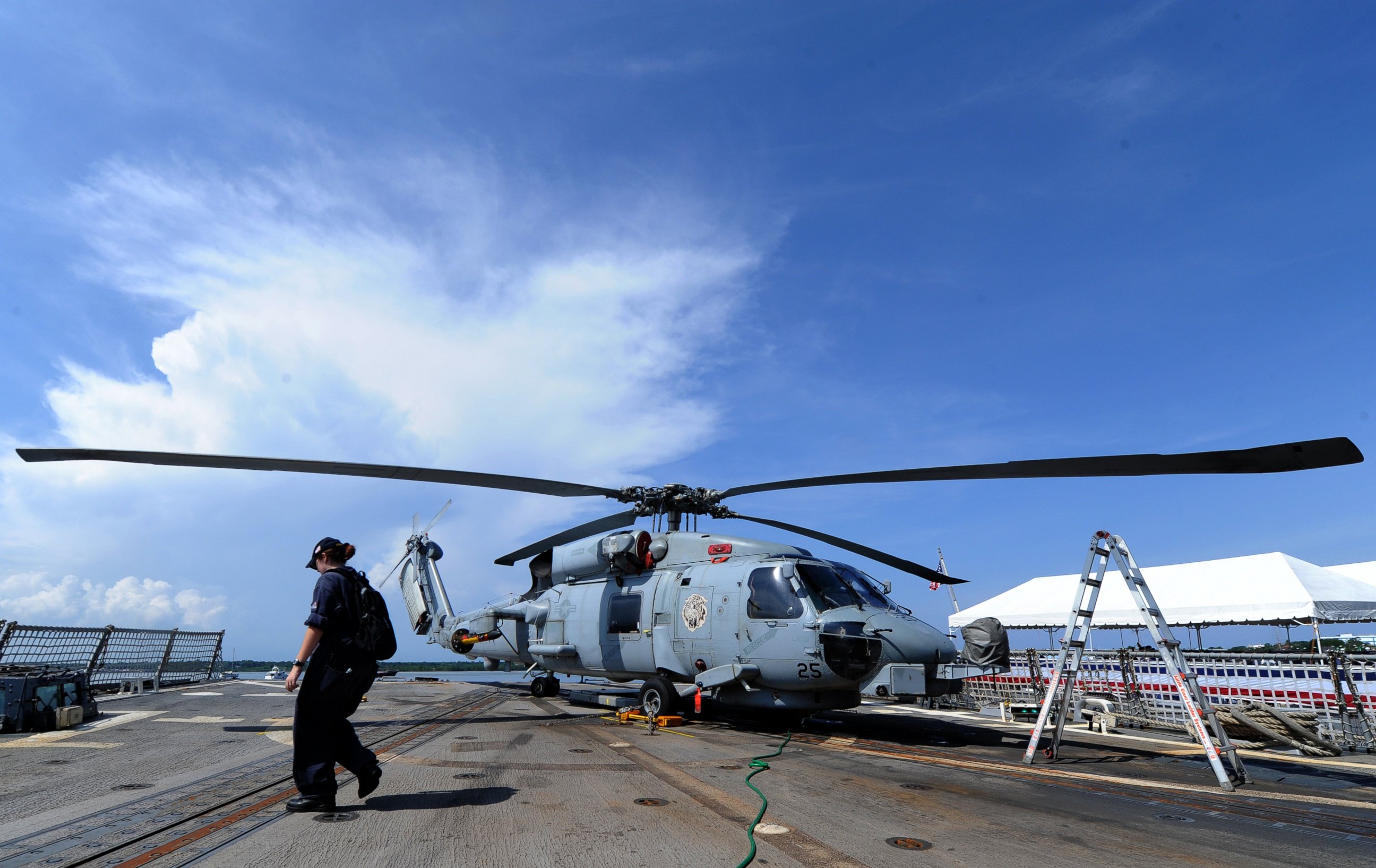How Obama's Vietnam Visit Became About China
China feels targeted after Obama lifted the arms embargo on Vietnam.
— -- President Obama and Secretary of State John Kerry are in Vietnam this week for a trip the White House says is aimed at rebalancing its interests in the Asia-Pacific region and expanding revitalized commercial relations with the country. But just as soon as the president made good on that and announced he would lift a decades-long arms embargo, heads in the region turned ... and China called foul.
The White House says its decision to give Vietnam access to the power of U.S.-made weapons systems is in no way influenced by China, but the regional powerhouse sees things very differently. Today, an op-ed in China's Global Times called that denial a "very poor lie," adding that the White House feels an urgent need to contain China.
To understand how the president's trip has angered China and what each side is saying, it's important to understand the tense regional security environment the president has entered.
Struggle for the South China Sea
The entirety of Vietnam's coastline abuts the South China Sea -- 14 million square miles of resource-rich ocean and strategic passageways that have become, in recent years, subject of a tense territorial dispute.
China claims the entirety of the sea, which U.S. observers say defies the basic principle of the Law of the Sea by basing its claim on arbitrary lines, rather than proximity to land features.
More importantly, the U.S. has grown increasingly concerned about China's rush to claim and militarize uninhabited islands that will greatly enhance its ability to enforce those claims and control the waterways. For months now, the U.S. has been risking confrontation by sailing U.S. naval vessels and flying military aircraft closer to those islands, seen by some as a gesture of protest and defiance.
And now, China sees the visit to Vietnam as another step in that encroachment.

It's About Us, China Says
A day after announcing that he would lift the weapons embargo, Obama drew applause in Hanoi when talking about the country's disputes with China and saying that "big nations should not bully smaller ones."
Though Obama didn't mention China by name, the implication was clear. That same morning, editors for the Global Times penned the editorial calling the president's denials about the arms embargo being aimed at China "a very poor lie," saying it is "exacerbating the strategic antagonism between Washington and Beijing."
The paper went on to claim that the U.S. "is taking advantage of Vietnam to stir up more troubles in the South China Sea."
U.S.: This Is Nothing out of the Ordinary
Meanwhile, Secretary Kerry spent his morning making the case to White House reporters the lifted arms embargo is not related to China's assertions in the South China Sea.
"This is not about China," Kerry said. "Nothing that we did here or are doing here is focused on China.... Nothing we’ve done here is out of the ordinary.
"We’ve lifted an embargo which was out of the ordinary," he emphasized.
Kerry claimed the U.S. isn't taking sides in the territorial disputes and only wants to urge that China resolve its disputes peacefully.
"We’re not saying China is wrong in its claims. We’re simply saying, 'Resolve it peacefully, resolve it through a rules-based structure,'" he said. "I hope China will read this correctly. Because our hope is for normal respect for maritime law and for the relationships that are so key in this region."
Nevertheless, warming relations with Vietnam could eventually lead to reopening U.S. naval access to one of the most critical ports on Vietnam's coast: Cam Ranh Bay. The U.S. Navy hasn't been allowed regular entry since it used it as a base during the war, and in 2012, President Obama was the first to send a U.S. defense secretary there in nearly 50 years. That port is Vietnam's nearest point to the contested islands.




